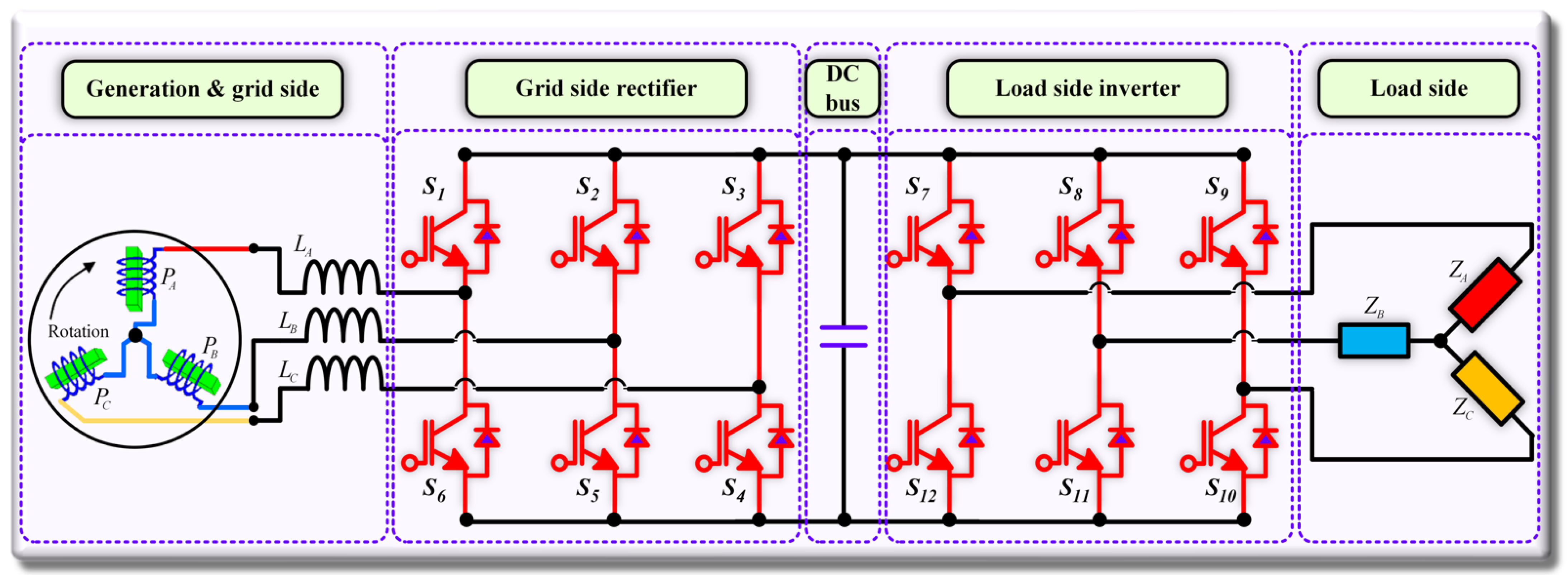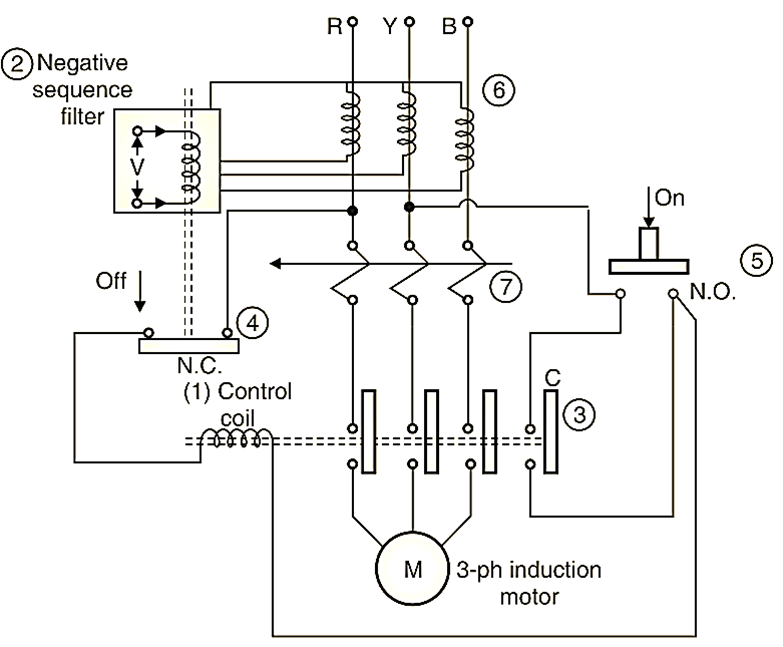Sensational Info About Can We Run 3 AC In Single-phase

Electric Motor Capacitor Schematic At Plumb Blog
Understanding Single-Phase Power and Air Conditioners
1. What's the Deal with Single-Phase Electricity?
So, you're thinking about staying cool, huh? Let's talk about electricity first. In most homes, you're probably using single-phase power. Think of it like a one-lane road — electricity flows in a single, alternating current. This is usually perfect for lights, TVs, and smaller appliances. It's the standard setup for residential areas because it's simpler and generally more cost-effective to distribute.
But here's the thing: air conditioners, especially larger ones, can be power-hungry beasts. They need a good surge of electricity to kickstart their compressors and keep your room feeling like a polar bear's lounge. That's where the question of single-phase and multiple ACs comes into play. It's like asking if that one-lane road can handle three monster trucks simultaneously — it depends on the road!
Now, don't get me wrong, single-phase is a workhorse. It diligently powers your everyday life. The challenge arises when you try to draw too much power at once. Overloading a single-phase circuit is like trying to fit too many people in a tiny elevator; things get crowded, and eventually, something's going to give (usually a tripped breaker!).
Therefore, knowing your home's electrical capacity is key. It's like knowing the weight limit of your car before loading it up for a family road trip. Ignoring it can lead to some pretty inconvenient (and potentially dangerous) situations. So, let's dig a little deeper into whether your single-phase setup can handle the cool breeze from three AC units.

Can We Run 3 AC in Single-Phase? The Million-Dollar Question
2. Crunching the Numbers
Alright, let's get down to brass tacks. Can you actually run three AC units on a single-phase system? The answer, frustratingly, is: it depends. It hinges on a few critical factors, primarily your home's electrical capacity and the power consumption of each air conditioner. Think of it like baking a cake; you need to know the oven's temperature and the ingredients' quantities before you start mixing.
First, find out your home's electrical service size. This is usually measured in amps and can be found on your main electrical panel (that gray box usually lurking in your basement or garage). Common residential services are 100 amps, 150 amps, or 200 amps. This number represents the maximum amount of electrical current your home can safely handle at any given time. Exceeding this limit is a surefire recipe for tripped breakers and potentially worse.
Next, check the power consumption of each AC unit. This information is usually listed on a sticker on the unit itself, often in terms of wattage (watts) or amperage (amps). If it's in watts, you can convert it to amps using the formula: Amps = Watts / Volts (in most homes, Volts are around 120V). Add up the amperage of all three AC units, and then factor in other appliances you'll be using simultaneously (lights, TVs, refrigerators, etc.).
If the total amperage draw is less than your home's service size, congratulations! You might be in the clear. However, it's wise to leave some headroom, maybe 20%, to avoid stressing your electrical system. Overloading circuits repeatedly can not only trip breakers but also potentially damage your wiring. In a nutshell, running three ACs on a single-phase system is like playing a balancing act; knowing the weights and limits is key to keeping everything upright.

The Ultimate Guide To Single Phase Motor Wiring Connection
Potential Problems and Solutions
3. When Things Go Wrong
Okay, let's say you tried running all three AC units at once, and BAM! The breaker trips. Annoying, right? Thats your electrical system telling you it's overloaded. Don't just keep flipping the breaker; thats like ignoring a warning light in your car and hoping the problem goes away. It won't.
One solution is load shedding. This basically means not running all three ACs (or other high-power appliances) at the same time. Think of it like staggering your cooking; you wouldnt put three turkeys in the oven simultaneously, would you? Instead, prioritize which rooms need cooling the most and stagger their usage.
Another approach is to upgrade your electrical service. If you consistently need to run multiple high-power appliances, upgrading to a larger service size (e.g., from 100 amps to 200 amps) might be the best long-term solution. This is like widening that one-lane road to a four-lane highway; it can handle much more traffic.
Consider also checking your AC unit's energy efficiency. Modern, energy-efficient models consume less power than older ones. Upgrading to newer, more efficient ACs can significantly reduce your electrical load, making it easier to run multiple units without overloading the system. It's like trading in a gas-guzzling truck for a fuel-efficient hybrid; you get the same functionality with less strain on your wallet and the environment.

StepbyStep Guide How To Wire A 3 Phase Air Conditioner Wiring
Is Three-Phase Power a Better Option?
4. Stepping Up
So, we've established that running multiple AC units on single-phase can be tricky. What about three-phase power? It's like the VIP section of the electrical world. Three-phase power involves three separate alternating currents, each offset by 120 degrees. This results in a smoother, more consistent power delivery, ideal for heavy-duty applications.
Think of it as having three synchronized engines working together instead of one struggling to keep up. Three-phase power can handle much larger loads without the voltage drops and imbalances that can plague single-phase systems. This is why it's commonly used in industrial settings and large commercial buildings where massive amounts of power are needed.
The downside? Three-phase power isn't typically available in residential areas. It's more expensive to install and maintain, and the equipment required is more complex. However, if youre running a business from home or have unusually high power demands, it might be worth exploring if your local utility offers it and if the benefits outweigh the costs.
Ultimately, deciding between single-phase and three-phase is like choosing between a bicycle and a motorcycle. A bicycle is fine for short trips around the neighborhood, but for long distances or heavy loads, you'll need a motorcycle's extra power and capacity. Similarly, single-phase is adequate for most homes, but for exceptional power needs, three-phase might be the superior option.

Single Phase Water Pump Circuit Diagram
Seeking Professional Advice
5. When to Call in the Experts
Look, electricity is nothing to mess around with. We've covered some basics, but if you're unsure about anything — especially when dealing with electrical panels, wiring, or calculating power loads — it's always best to consult a qualified electrician. They're like the seasoned mechanics of your home's electrical system; they know the ins and outs and can diagnose problems accurately.
A licensed electrician can assess your home's electrical capacity, evaluate the power consumption of your AC units, and recommend the safest and most efficient way to manage your cooling needs. They can also identify potential hazards, such as outdated wiring or overloaded circuits, that you might not be aware of.
Trying to DIY electrical work without the proper knowledge and skills can be dangerous and even illegal. It's like attempting surgery on yourself; you might think you know what you're doing, but you could end up causing serious harm. Save yourself the headache (and potential shock!) and let the professionals handle it.
Therefore, investing in a professional consultation is a small price to pay for peace of mind and safety. It's like buying insurance; you hope you never need it, but you're glad you have it when things go wrong. So, before you crank up all three AC units this summer, consider giving your local electrician a call. Your comfort and safety are worth it!

FAQ
6. Your Burning Questions Answered
Got more questions about running multiple AC units in your home? Here are some common queries:
Q: Will running multiple AC units increase my electricity bill significantly?
7. Answer
A: Absolutely. Air conditioners are major energy consumers. Running multiple units simultaneously will definitely increase your electricity consumption, which translates to a higher bill. Consider using them strategically (e.g., only cooling occupied rooms) and investing in energy-efficient models to minimize the impact.
Q: Can I use a generator to power my AC units during a power outage?
8. Answer
A: Yes, but you need to ensure the generator has enough power capacity to handle the starting load of all the AC units, plus any other essential appliances. Refer to the generator's specifications and the AC units' power requirements to determine if it's feasible. It's also wise to consult an electrician to ensure safe generator operation.
Q: What happens if I keep tripping the breaker when running my ACs?
9. Answer
A: Repeatedly tripping the breaker is a sign of an overloaded circuit. Continuing to reset the breaker without addressing the underlying issue can damage your wiring and potentially cause a fire. The best course of action is to reduce your power consumption (e.g., by not running all ACs at once) and consult an electrician to evaluate your electrical system and recommend appropriate solutions (e.g., upgrading your service or adding dedicated circuits).